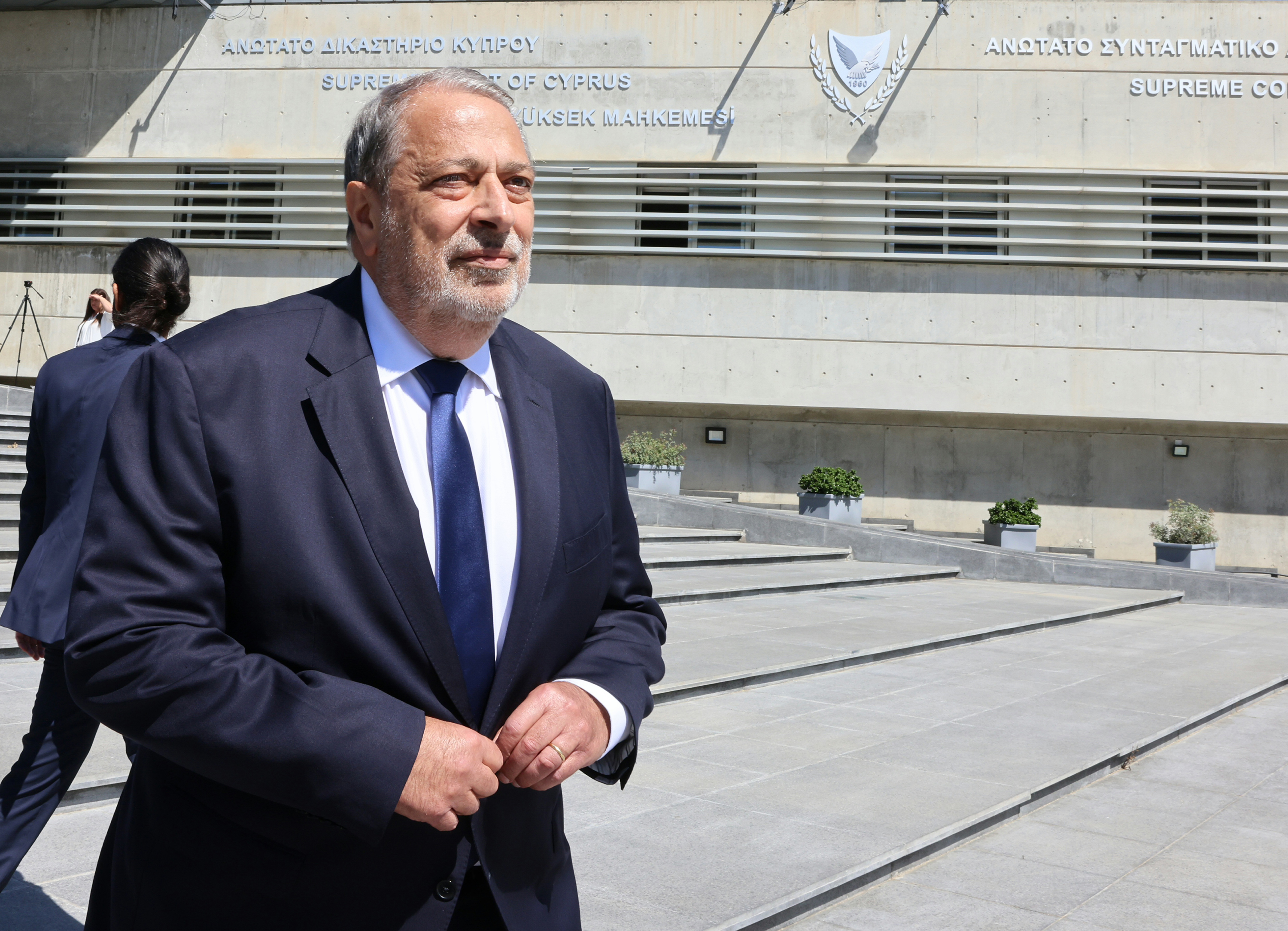Former Edek leader Marinos Sizopoulos, predictably, denied any wrongdoing and defiantly declared that he was “spotlessly clean,” after the release of the investigation into the allegations of corruption made against him.
The investigation carried out by the independent anti-corruption authority after allegations made against Sizopoulos by former Edek deputy Giorgos Varnavas found offences committed “constitute acts of corruption” as they involved “elements of deceit, deception and self-serving motivation,” caused “property damage to a third party.” They also violated the rules of transparency and correct conduct.
The two investigators arrived at these conclusions after 31 meetings for testimony and collecting documentation. Twenty-eight people were invited to give testimony, and 262 items of evidence were submitted. With the authority having concluded acts of corruption may have been committed, all the documentation was sent to the attorney-general’s office, which now has to decide whether charges would be brought against Sizopoulos.
The anti-corruption authority does not have the power to fine or prosecute. It can investigate someone reported to it, but there its powers end. Once the investigation is completed, the findings have to go to the attorney-general, who will decide if the matter is worth pursuing. Now, the pressure will be on AG Giorgos Savvides, who, shortly after his appointment, took a decision favouring Sizopoulos.
He rejected a request for lifting Sizopoulos’ parliamentary immunity so he could be questioned about a case, as a result of which the case was shelved. The AG exercised his powers without offering any explanation, giving rise to speculation that he was following the tradition of treating a party leader as untouchable. Will he decide there are no grounds for lifting Sizopoulos’ parliamentary immunity and bringing charges against him now?
It is a difficult call, but the future standing of the anti-corruption authority depends on the decision Savvides will take. If he decides to do nothing, not only will he be accused, rightly or wrongly, of protecting Sizopoulos, but he would also have dealt a fatal blow to the credibility of the authority, the findings of which must be taken seriously by the AG and acted on. If they are not, what is the point of having the authority?
In fact, Sizopoulos questioned the legitimacy of the anti-corruption authority immediately after it made the report public on Friday. He questioned the validity of the report, saying he would ask the authorities whether the authority had the power to investigate the case that he was involved in and whether it had the right to make the findings public.
His attempt to discredit the authority, which cannot prosecute anyone, is obvious. Although it is a toothless organisation, it could still have a very useful role to play, acting as an investigative body. First, however, it has to build its credibility and convince the public about the trustworthiness of its investigations. Once it achieves this – as we think it has done in the case of Sizopoulos – it will not matter that it does not have the power to charge anyone. People will be better informed about corruption even if the AG decides not to prosecute.






Click here to change your cookie preferences